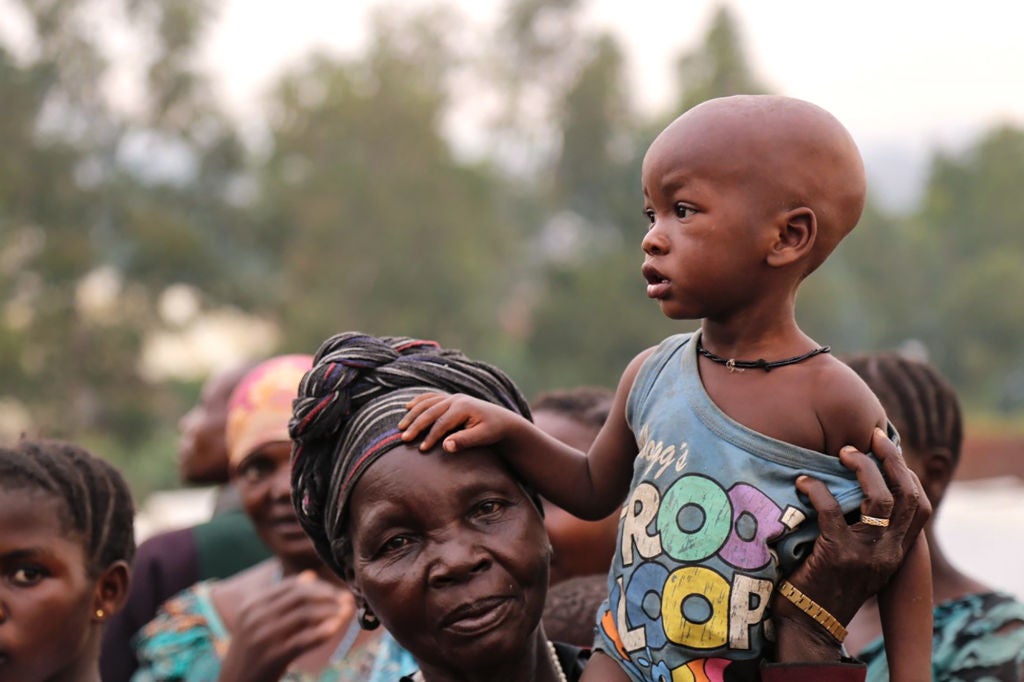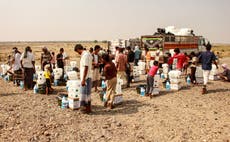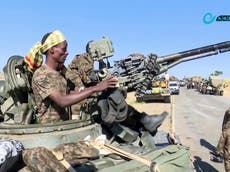Democratic Republic of the Congo is suffering one of the worst humanitarian crises on record – are we going to ignore it?
Families have suffered continual violence, had their homes burned to the ground and have no access to basic services – they need our help

Your support helps us to tell the story
From reproductive rights to climate change to Big Tech, The Independent is on the ground when the story is developing. Whether it's investigating the financials of Elon Musk's pro-Trump PAC or producing our latest documentary, 'The A Word', which shines a light on the American women fighting for reproductive rights, we know how important it is to parse out the facts from the messaging.
At such a critical moment in US history, we need reporters on the ground. Your donation allows us to keep sending journalists to speak to both sides of the story.
The Independent is trusted by Americans across the entire political spectrum. And unlike many other quality news outlets, we choose not to lock Americans out of our reporting and analysis with paywalls. We believe quality journalism should be available to everyone, paid for by those who can afford it.
Your support makes all the difference.When reports came out late last year about more than a hundred children in the Democratic Republic of the Congo’s Ituri province killed or maimed in just a few months, the world briefly looked up – and then carried on.
Yet for people in Ituri, this violence continues and deeply impacts their lives.
"They killed women, men, and children. We were hiding inside when the door was locked and the house was set on fire. I am the only one who survived”, a 17-year-old girl told us, while looking at what’s left of the burned houses in her village in Ituri.
The girl’s story is a familiar one, there are hundreds of thousands of people in Ituri who have been uprooted from their daily lives, confronted with death and destruction, without enough to eat, and surviving on crucial aid.
Families are suffering one of the worst and most neglected crises in the world. The violence and fighting between armed groups forced at least 627,000 people from their homes in the first half of 2020 alone – hampering their access to health care, security and food.
Of those displaced by violence, 6.5 per cent of children under five are severely malnourished – one in 15 children under five is at very high risk of dying. Analysis from IPC Global Platform estimates that half of the Ituri population will face acute food insecurity in 2021, pushing a province the size of Ireland into a hunger crisis, with 2.4 million people in dire need of support.
At least 450 civilians have been killed in Ituri since March 2020. Many of those who survived have lost their education. Some 160 schools were damaged and looted, pushing 80,000 children out of school. In addition, at least 18 health facilities were destroyed last year, leaving children and their families without access to basic medical services.
Peace talks started in August, but Ituri is still far from safe. After a few weeks of relative calm, recent attacks have plunged the region back into violence.
The Democratic Republic of the Congo’s national resources are attractive to the international community, and nations looking to benefit from what the country has to offer have a responsibility to encourage peace and help provide solutions to these deep-rooted grievances.
Meanwhile, international aid is more important than ever, we ask governments to up their contributions, and help the millions without clean water and health services, plus the families facing starvation if Ituri's situation does not improve.
We urge all parties in the conflict to end attacks on civilians and protected facilities, and provide aid workers unhindered access to people in need.
There is no time to wait, we need to act now.
Benjamin Viénot is country director for Action Contre la Faim, Maureen Philippon is country Director for the Norwegian Refugee Council, Malik Allaouna is country director for Save the Children




Join our commenting forum
Join thought-provoking conversations, follow other Independent readers and see their replies
Comments